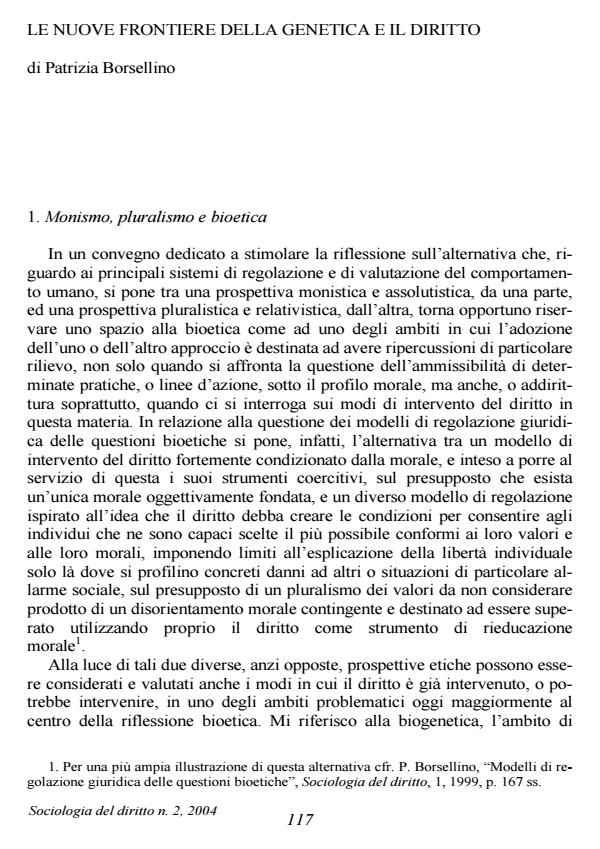La nuove frontiere della genetica e il diritto
Journal title SOCIOLOGIA DEL DIRITTO
Author/s Patrizia Borsellino
Publishing Year 2004 Issue 2004/2
Language Italian Pages 14 P. File size 59 KB
DOI
DOI is like a bar code for intellectual property: to have more infomation
click here
Below, you can see the article first page
If you want to buy this article in PDF format, you can do it, following the instructions to buy download credits

FrancoAngeli is member of Publishers International Linking Association, Inc (PILA), a not-for-profit association which run the CrossRef service enabling links to and from online scholarly content.
What are the premises that genetics is capable of maintaining? What threats deriving against which defences need to be constructed, making use of legal tools, among other things? By clarifying the practical fallout deriving from the knowledge acquired in the field of genetics in recent years, in particular the human genome mapping project, the author highlights how genetics offers authority neither to postulate that all diseases may be vanquished within a handful of years, nor to fear that there is a concrete risk of living in a society of genetically manipulated human beings. There is rather a risk deriving from the availability of a large amount of genetic information, related to the diffusion of increasingly accessible tests that ascertain an individual’s genetic predisposition to develop a given illness or certain behavioural features. Discriminatory policies have in fact already been put into place in some cases especially in the areas of insurance and employment on the weak foundations of the statistical probabilities of genetic profiles calculated on the basis of predictive tests. Moreover, a new lease of life has been acquired by the deterministic conception already used towards the end of the nineteenth century by the Positive Criminal School to justify the preventive restriction of personal freedom. After stressing that every intervention of lawmaking with regard to genetic information implies the need to make critical value judgements, the author highlights the fact and adds her own positive appraisal that the interventions of lawmaking in this field on both national and international level for which information is available have identified individual freedom as the priority value deserving of suitable legal safeguards, thus supporting the pluralist ethical perspective that has no room for any form of subordination of individuals and their choices to any claims of supposed moral superiority, not even of a social moral centred on the public weal and social defence.
Patrizia Borsellino, La nuove frontiere della genetica e il diritto in "SOCIOLOGIA DEL DIRITTO " 2/2004, pp , DOI: